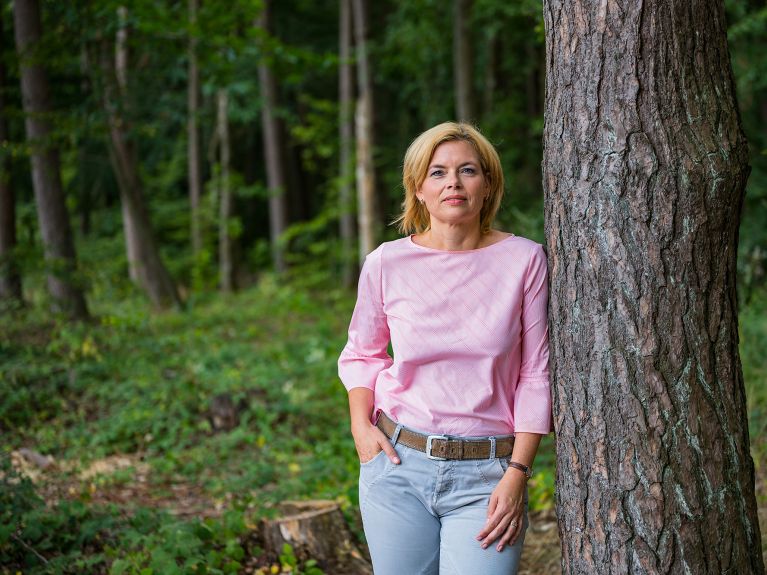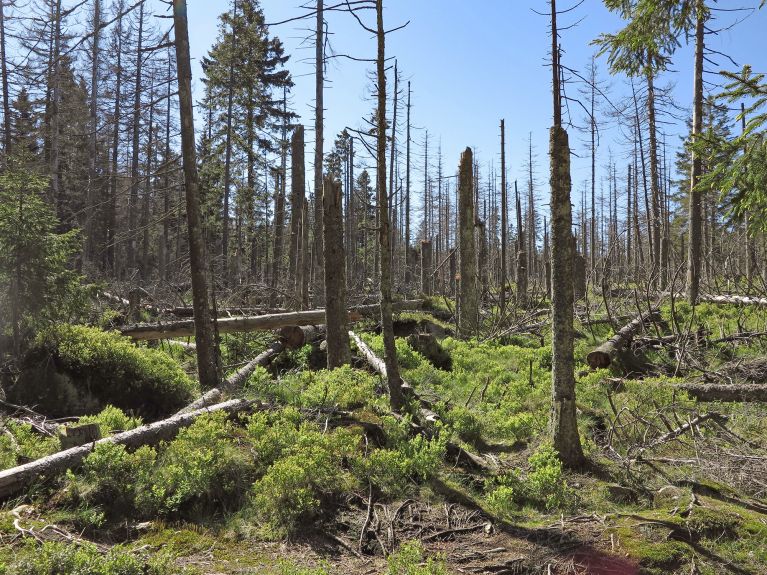“The situation is dramatic”
In our interview, Federal Minister of Food and Agriculture Julia Klöckner explains why she convened a “forest summit”.

Minister Klöckner, you convened a “forest summit” to highlight the outlook for Germany’s forests. Why such urgency?
We are currently at a turning point and the situation is dramatic. Massive damage has been caused by storms, drought, bark beetles and forest fires – resulting in the loss of over 110,000 hectares of woodland. That’s why we must act now. Very unusually, the federal and state governments agree that concerted and coordinated assistance is necessary. This is not a question of compensating individuals for the damage caused, but of preserving forests and the functions they fulfil for society. Climate protection, biodiversity, securing jobs and incomes, and providing recreation for the general public – all these things play a role. Every tree that we fail to replant today will not be available to future generations. Our goal is to have climate-stable mixed forests. For this to work, there need to be clear and transparent guidelines that we intend to specify further at the forest summit – working closely together with scientists.

If timber were to be used more in construction, more carbon would be stored long-term.”
The ability of the forest to store carbon also plays an important role in the climate debate. What potential do you still see in Germany?
Forests are our closest allies when it comes to climate protection, serving as the country’s “lungs”. The sustainable management of our forests alone allows us to reduce our carbon emissions by 14 percent. If we do not repair the forests, in other words, there is no point talking about climate protection. I also see great potential for using wood as a building material – this is something I am really pushing at the ministry. If timber were to be used more in construction, more carbon would be stored long-term. Greenhouse gas emissions can be reduced by more than half as compared with conventional building methods.
Quick facts
Using forests to protect the climate is not only important at the national level. Which international objectives are you pursuing?
People all over the world are very keen to collaborate with our experts and the German forestry sector. They are interested in knowledge transfer because our foresters have succeeded for decades in keeping Germany’s woodlands highly productive and well-stocked while at the same time maintaining their key functions for the environment and for society. Future requirements will make it more important than ever to preserve, foster and transport this knowledge of forestry, and to do so on all levels – from forestry workers to forestry researchers. A new international “forest education” platform that we are currently preparing in cooperation with the relevant organisations around the world should help.
Interview: Martin Orth
Dieses YouTube-Video kann in einem neuen Tab abgespielt werden
YouTube öffnenThird party content
We use YouTube to embed content that may collect data about your activity. Please review the details and accept the service to see this content.
Open consent formYou would like to receive regular information about Germany?
Subscribe here:



